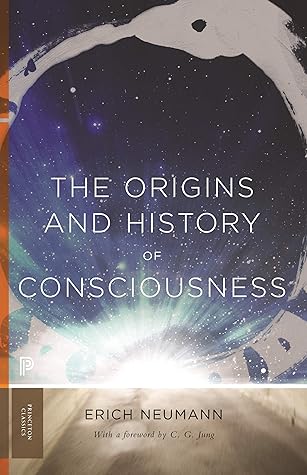More on this book
Community
Kindle Notes & Highlights
He whose vision cannot cover History’s three thousand years, Must in outer darkness hover, Live within the day’s frontiers. GOETHE, Westöstlicher Diwan
Unlike other possible and necessary methods of inquiry which consider the development of consciousness in relation to external environmental factors, our inquiry is more concerned with the internal, psychic, and archetypal factors which determine the course of that development.
The structural elements of the collective unconscious are named by Jung “archetypes” or “primordial images.”
They are the pictorial forms of the instincts, for the unconscious reveals itself to the conscious mind in images which, as in dreams and fantasies, initiate the pr...
This highlight has been truncated due to consecutive passage length restrictions.
Any attempt to outline the archetypal stages from the standpoint of analytical psychology must begin by drawing a fundamental distinction between personal and transpersonal psychic factors. Personal factors are those which belong to one individual personality and are not shared by any other individual, regardless of whether they are conscious or unconscious.
Transpersonal factors, on the other hand, are collective, supra- or extra-personal, and are to be regarded not as external conditions of society, but as internal structural elements.
The individualized conscious man of our era is a late man, whose structure is built on early, pre-individual human stages from which individual consciousness has only detached itself step by step.
Again, the relation between the transpersonal and the personal—which plays a decisive role in every human life—is prefigured in human history. But the collective aspect of this relationship does not mean that unique or recurrent historical events are inherited, for up to the present there has been no scientific proof of the inheritance of acquired characteristics. For this reason analytical psychology considers the structure of the psyche to be determined by a priori transpersonal dominants —archetypes—which, being essential components and organs of the psyche from the beginning, mold the
...more
The castration motif, for instance, is not the result of the inheritance of an endlessly repeated threat of castration by a primordial father, or rather by an infinity of primordial fathers. Science has discovered nothing that could possibly support such a theory, which moreover presupposes the inheritance of acquired characteristics. Any reduction of the castration threat, parricide, the “primal scene” of parental intercourse, and so on, to historical and personalistic data, which presumes to paint the early history of humanity in the likeness of a patriarchal bourgeois family of the
...more
It is one of the tasks of this book to show that, in regard to these and similar “complexes,” we are really dealing with symbols, ideal forms, psychic categories, and basic structural patterns whose infinitely varied modes of operation govern the history of mankind and the individual.7 The development of consciousness in archetypal stages is a transpersonal fact, a dynamic self-revelation of the psychic structure, which dominates the history of mankind and the individual. Even deviations from the path of evolution, their symbology and symptomatology, must be understood in relation to the prior
...more
Our aim is not confined to pointing out the correct relation of the ego to the unconscious, and of the personal to the transpersonal. We have also to realize that the false, personalistic interpretation of everything psychic is the expression of an unconscious law which has everywhere constrained modern man to misinterpret his true role and significance. Only when we have made it clear to what degree the reduction of the transpersonal to the personal springs from a tendency which once had a very deep meaning, but which the crisis of modern consciousness has rendered wholly meaningless and
...more
The relation of the ego to the unconscious and of the personal to the transpersonal decides the fate not only of the individual, but of humanity. The theater of this encounter is the human mind. In the present work, a substantial part of mythology is seen as the unconscious self-delineation of the growth of consciousness in man. The dialectic between consciousness and the unconscious, its transformation, its self-liberation, and the birth of human personality from this dialectic form the theme of Part I.
It is in this sense that we use the terms “masculine” and “feminine” throughout the book, not as personal sex-linked characteristics, but as symbolic expressions. When we say masculine or feminine dominants obtrude themselves at certain stages, or in certain cultures or types of person, this is a psychological statement which must not be reduced to biological or sociological terms. The symbolism of “masculine” and “feminine” is archetypal and therefore transpersonal; in the various cultures concerned, it is erroneously projected upon persons as though they carried its qualities.
Nature rejoices in nature. Nature subdues nature. Nature rules over nature. OSTANES


